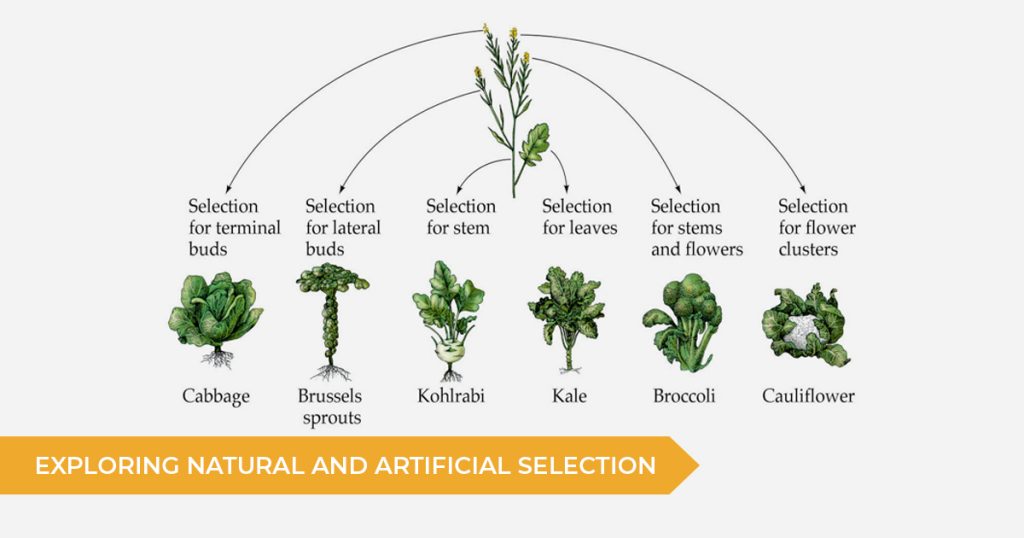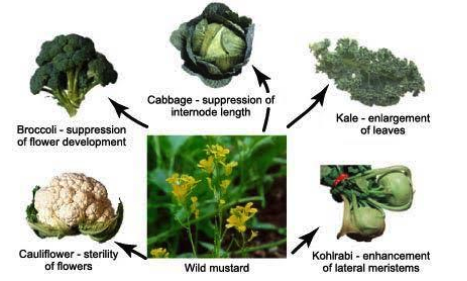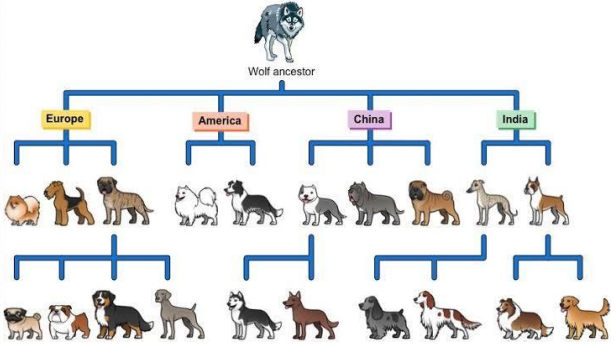Biotechnology in Artificial and Natural Selection
Let’s take a closer look into Biotechnology and how this plays into Natural and Artificial Selection
A beginners guide to Biotechnology
Biotechnology is the collection of techniques aiming towards the deliberate alteration of the genetic composition of living organisms.
Biotechnology allows humans to reap several benefits in the fields of medicine, agriculture, industry and conservation. Contrary to common belief, biotechnology has been used for millennia (even if only recently we actually understand how the genetic modifications work).
Biotechnology includes a broad range of techniques – students are encouraged to be familiar with at least a few of the most common examples you need to know in order to complete HSC Biology Module 6: Genetic Change.
What is Artificial Selection?
The first chapter of Charles Darwin’s ‘On the Origin of Species’ is entitled Variation under Domestication’ where he presents many examples of how domesticated plants and animals have changed over time to become better adapted to human needs. He explains these changes as:
“Man’s power of accumulative selection: nature gives successive variations; man adds them up in certain directions useful to him.”
In agriculture and horticulture, humans purposely choose particular organisms from which to breed new crops. The organisms are selected because they have certain characteristics that people what. Productive food, champion racehorses, colourful flowers and prize-winning pedigree dogs have all been the result of artificial selection – better known as, selective breeding.
RELATED: The Ultimate Guide to High School Biology (Modules 1-8)
Artificial selection is achieved through the application of biotechnology and has several similarities to natural selection. However, it differs in many key points:
 A brief history of Biotechnology
A brief history of Biotechnology
The first domestication of food plants probably took place between 10,000 and 13,000 BC in Southeast Asia where crops such as rice and beans were planted and harvested. The Fertile Crescent, which includes parts of present-day Iraq, Iran, Turkey, Lebanon, Israel and Jordan, were other sites where crops like wheat were developed. Animals such as the horse, donkey, camel and sheep were domesticated as well. Early farmers took advantage of naturally occurring genetic differences to produce higher percentages of desirable genes.
It was not until Gregor Mendel’s work concerning the genetic basis of inheritance that plant and animal breeding would have scientific foundation. The foundation permitted rapid advances in breeding techniques beginning in the 1900s.
Today biotechnology play an important role in artificial breeding the laboratory. No longer do scientists have to wait for a whole generation to pass to see the effects of artificial selection. Through cloning and genetic engineering, the whole process can be sped up in a much more controllable and safer way.
Over many generations, artificial selection may lead to speciation or sub-speciation. For instance, many vegetable staples are in fact species evolved from a single plant (wild mustard) by selectively breeding individuals with various desired traits over and over.
Another example is the creation of dog breeds via selective breeding for different purposes:
Need some extra help navigating HSC Biology? We’ve got you covered at Talent 100
Our Sydney learning centres are open all week (Burwood, Chatswood, Epping, Hurstville & Sydney CBD), so you can master the foundations of Year 12 Biology.
We also have online classes available for students in NSW – so you won’t miss out on any valuable Biology time this year! Take advantage of our 1-1 classes where you can get your past papers marked, ask questions about homework, or just speak to one of our Biology Mentors.
Click here to find out more about our HSC Biology tuition courses.




